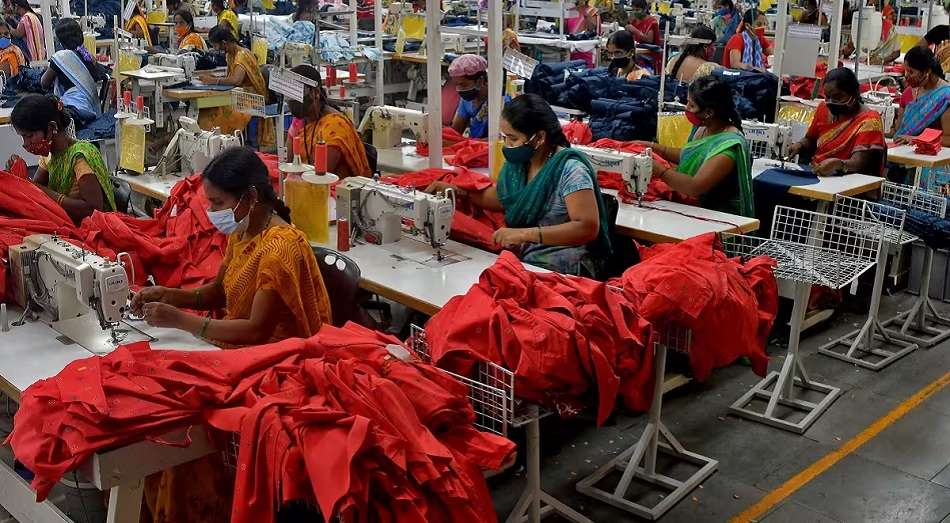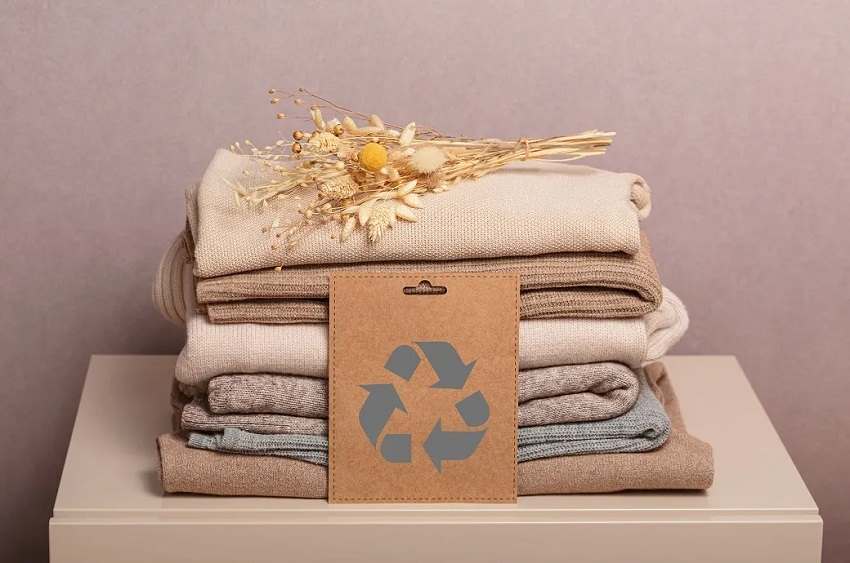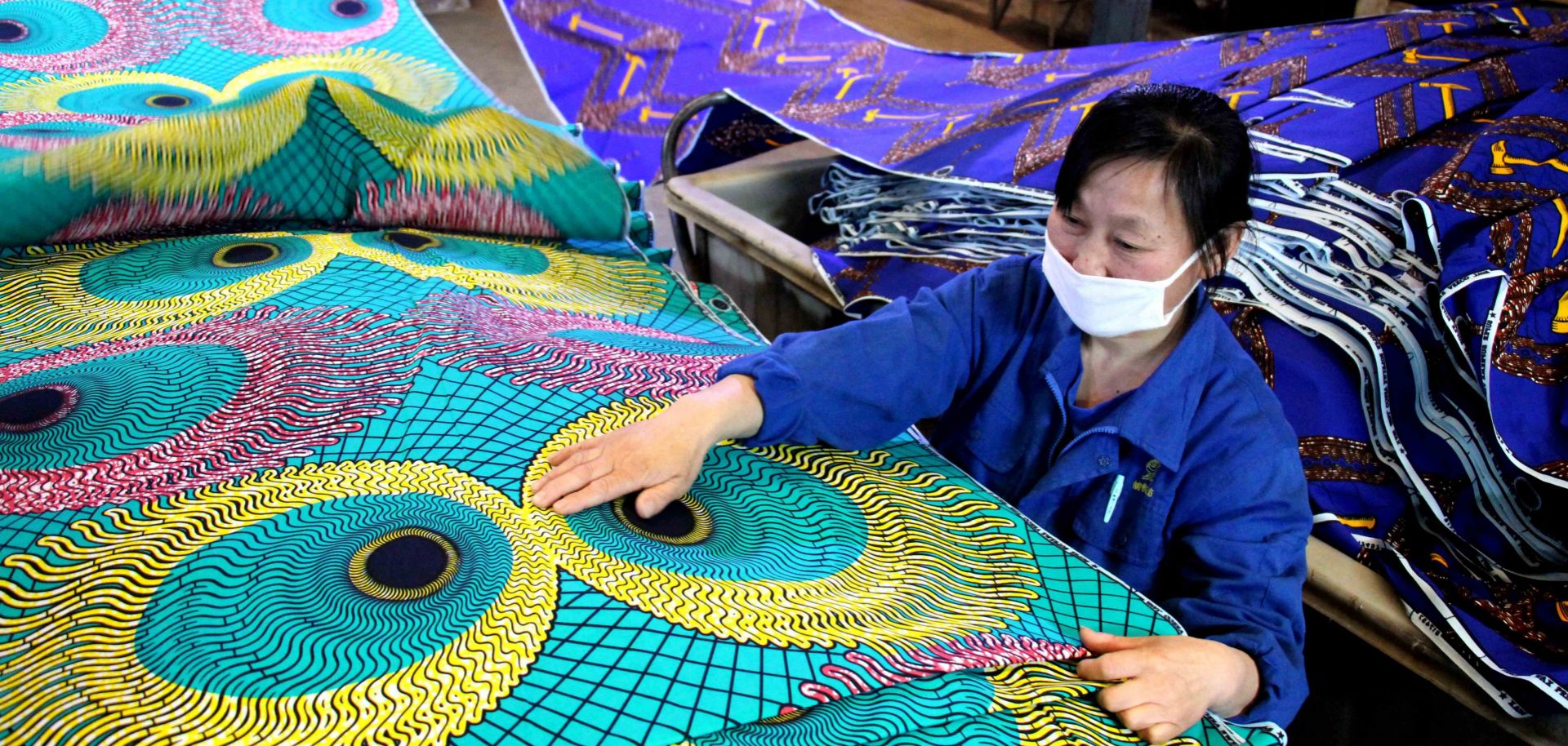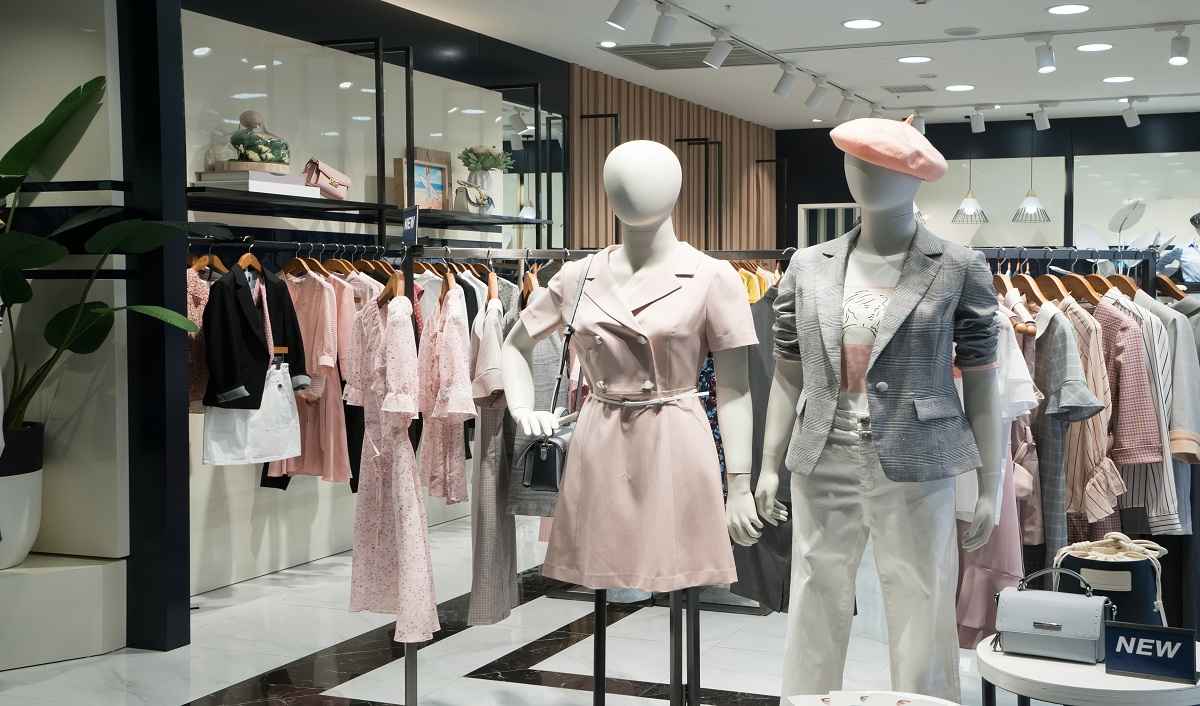FW
Language’s new hand-painted shoe collection epitomizes luxury and craftsmanship. Each pair is meticulously handcrafted from premium leather, ensuring both quality and a luxurious feel. The collection's hallmark lies in its striking two-tone details and intricate, hand-finished highlights that showcase pure artisanal excellence.
Designed for the sophisticated urban man, these shoes are perfect for any formal occasion, from grand festivities to business events. They offer unparalleled style, confidence, and grace, helping you make a lasting impression.
Every pair is a unique embodiment of dedication and passion, crafted by skilled artisans who infuse their heart into every shoe. These shoes are more than just a fashion statement; they are a testament to impeccable taste and timeless allure.
Discover Language’s hand-painted shoe collection at exclusive brand outlets in Chennai, Hyderabad, Bengaluru, Kochi, Ludhiana, Kozhikode, Patiala, and Bathinda, or at over 250 multi-brand outlets across the country including Metro Shoes, Mochi, and Regal Shoes.
Italian fashion brand Fila has launched a new campaign and collection to celebrate its Italian heritage and highlight a renewed focus on combining beauty and sport performance.
The Bellissimo campaign and the AW24 Casa Fila Collection signify the beginning of a new era for the brand, aiming to reshape its identity and perception among consumers. Inspired by its rich heritage, Fila emphasises its commitment to style and performance, embodying the brand’s belief in balancing both elements seamlessly.
Designed for the modern club sport athlete, the collection features elevated takes on Fila classics, such as the BB1 Polo now made with performance materials, and tennis apparel that merges the brand’s classic design DNA with contemporary twists.
Todd Klein, Fila's Global Brand President, says,the campaign and new collection set the tone for Fila’s future. The campaign reimagines the traditional country club scene as the Bellissimo Country Club, a place in which anyone and everyone is invited to indulge in la vita bella through a delightful mix of sport and play, he adds.
The campaign can be viewed across Fila-owned and operated channels, through paid media, influencer content, out-of-home (OOH) advertising, streaming, and e-commerce platforms. Its hero film will be adapted for social media channels, with imagery from the film used in OOH and retail locations.
Led by the Taliban, Afghan Golden Cotton Company signed a $25 million contract with a Chinese company Shanghai Khuban Textile Company for the export of cotton thread. The contract entails exporting 10,000 tons of cotton thread to China. The contract was signed in Kabul during the celebration of National Export Day.
The Taliban's Ministry of Commerce highlighted this deal as a significant step towards boosting Afghanistan's export sector. Taliban officials have consistently urged local investors to channel their investments into Afghanistan to stimulate economic growth. However, the private sector faces numerous obstacles that hinder such investments. These challenges include banking restrictions, high tariffs, steep taxes, political instability, security concerns and infrastructure challenges.
In related developments, the Taliban recently appointed Noor Ahmad Agha, a sanctioned Taliban member, as the governor of Afghanistan’s Central Bank. This appointment has raised concerns among international observers about the governance and financial stability of the country. Despite these challenges, the Taliban continues to push for economic self-sufficiency and growth through initiatives like the recent cotton thread export contract.

India, the world's 5th largest economy by GDP (Gross Domestic Product), holds a significant position in global trade. In 2023, its total trade value surpassed $1 trillion, a remarkable feat for a developing nation. But a closer look reveals an interesting dynamic between its import and export partners.
Import Powerhouses: China, UAE, and US lead the pack
As per Ministry of Commerce and Industry stats China reigns supreme as India's import giant, supplying nearly $100 billion worth of goods in FY23. This is almost double the combined import value from the UAE ($53 billion) and the US ($50 billion), ranking second and third respectively. Consumer electronics, computer hardware, and electrical machinery are some of the top imports from China. Russia, at number four ($46 billion), stands out as the sole European representative in the top 10, catering to India's massive crude oil import needs.
A growing trade gap, a cause for concern
However, a closer look reveals a trade deficit of $268 billion, highlighting the country's reliance on imports. The US is India's biggest export market ($78.5 billion), with textile, apparel, and fashion (TAF) goods potentially contributing to this figure. India enjoys a trade surplus with the US, unlike its major trading partners like China. Other promising export destinations include the UAE, Netherlands, and Bangladesh. China remains India's top import partner overall ($98.5 billion), with consumer electronics, computer hardware, and electrical machinery likely including TAF machinery. Other major import sources include the UAE ($53 billion) and the US ($50 billion).
India's trade deficit has steadily widened over the past six years, reaching a record $268 billion in FY23. This can be attributed to factors like a large and growing domestic demand that is not entirely met by its manufacturing base, and a heavy reliance on external crude oil supplies.
Table: Top import and export partners
|
Rank |
Country |
FY23 imports (mn $) |
FY23 exports (mn $) |
Trade difference (mn $) |
|
Imports |
||||
|
1 |
China |
98,506 |
15,306 |
-83,200 |
|
2 |
UAE |
53,232 |
31,609 |
-21,623 |
|
3 |
US |
50,864 |
78,543 |
27,679 |
|
Exports |
||||
|
1 |
US |
78,543 |
||
|
2 |
UAE |
31,609 |
-21,623 |
|
|
3 |
Netherlands |
21,618 |
15,657 |
India's trade presents a fascinating picture of a growing economy with immense potential. To bridge the trade gap, India might focus on sectors like textiles, apparel, and fashion, where it has a strong comparative advantage. By strategically promoting exports and potentially reducing reliance on certain imports, India can work towards a more balanced trade scenario in the coming years.
ACM -Dettagli di Moda, based in Bergamo, has been a trendsetter for over 40 years, catering to global style offices with a constantly updated portfolio of accessories. Known for its bold and creative offerings, ACM's range includes buttons, leather goods, and accessories that exceed high fashion expectations.
At Milano Unica, ACM presented its Autumn/Winter 25/26 collection, showcasing handcrafted, customizable Made in Italy items. The collection delves into themes like a magical connection with nature (Zeroto Hero), minimalism and resource optimization (Simplicity), and individuality (Good Vibes).
Highlighted pieces include leather items with contrast prints and metal details, buttons made from natural materials like horn and mother-of-pearl, and activewear-inspired accessories featuring silicone labels and reflective materials.
Additionally, ACM’s new digital printing division, NextPrinting, offers sustainable solutions for the textile industry, reducing consumption while delivering high graphic performance. This division specializes in creating realistic, repeatable effects on woven fabrics, mimicking vintage garments and leather textures with high visual impact and tactile authenticity.
Founded in Grumellodel Monte, ACM has a legacy of over 40 years in drawing, designing, and producing high-fashion creations. The NextPrinting division, sharing ACM’s principles of innovation and sustainability, enhances their offerings with advanced digital printing technology.
Owner of the fast fashion brand Uniqlo, Fast Retailing has raised its full-year profit forecast to 475 billion yen, from the previous estimate of 450 billion yen.
Driven by strong domestic sales, the company’s operating profit rose by 29 per cent during Q3 FY24. Surpassing the consensus forecast of 127.1 billion yen from poll of six analysts by LSEG, Fast Retailing’s profit for quarter ending May 31 increased to 144.7 billion yen ($894.81 million) from 112.5 billion yen in the same period the previous year.
Known for its quality, affordable basics, the company’s flagship brand Uniqlo benefited from the yen's depreciation to a 38-year low, enhancing the value of its overseas sales.
Fast Retailing is pursuing aggressive growth in Greater China, North America, and Europe, capitalising on a post-pandemic consumer shift towards value over luxury. With over 900 stores in mainland China, the company serves as a key indicator for global retailers in the world's second-largest economy.
However, despite the overall profit increase, Fast Retailing's operations in Greater China experienced a decline in revenue and a significant drop in profit over the nine-month period. This decline was partly due to a strong performance in the previous year and a general slowdown in consumer demand.
Leading home textiles manufacturer, Indo Count Industriesand a premium ginning unit and Gujarat-based ICS reputed for its production of premium Sankar-6 cotton, Shreeram Cotton Industries have signed aMoU to initiate the Regenagri Cotton Project.
The project emphasises on the company’s commitment to advance sustainable agricultural practices that benefit both farmers and the environment, says KK Lalpuria, CEO & Executive Director, Indo Count Industries.
The project aims to empower farmers by providing them with the knowledge and tools needed to thrive in an evolving agricultural landscape, ensuring that farming systems work harmoniously with nature while maintaining economic viability.
An abbreviation for Regenerative Agriculture, Regenagrien compasses holistic farming systems designed to enhance ecosystem biodiversity, improve soil health, and boost water and air quality. The project combines the expertise and resources of Indo Count Industries and Shreeram Cotton Industries to drive a positive change across the agricultural sector, fostering community well-being alongside environmental sustainability.
NatubhaiPanchani, Partner, Shreeram Cotton Industries, notes, by leveraging the strengths of both the organisations, the Regenagri project aims to develop scalable solutions to be implemented across diverse agricultural regions.
The project also strives to serve as a model for industry-wide transformation towards regenerative practices by fostering collaboration and innovation, he adds.
The first sustainability report published by global workwear textile manufacturer, Carrington Textiles highlights some of its significant achievements in environmentally responsible activities.
Presented by Carrington Textiles’ parent company, RTS Textiles Group, the report outlines various aspects, including the organisation’s structure, sustainability approach, social performance and future targets.
A few of the key highlights of the report include an investment of over €16.7 million made by the company across sites to enhance environmental performance through the purchase of state-of-the-art equipment, such as a Combined Heat and Power (CHP) unit, biomass boilers and solar panels.
Additionally, the report sheds light on the company’s carbon roadmap, covering emissions under scopes 1, 2, and 3.
John Vareldzis, RTS Textiles CEO, observes, the report reflects the increasing importance of sustainability in the company’s operations. It helps bring transparency and accountability across operations, which, in turn, propels the company towards the sustainability path.
With an 8.4 per cent share and a total value of $9billion,India ranks ninth in the global slow fashion market. On the other hand, nearly 13.87 per cent of the clothing market in the country is made up of fast fashion.
As per an analysis by the apparel and footwear brand Public Desire with a total value of $5 billion, or 47.3per cent share, the United Arab Emirates leads the global slow fashion market.
Ranking fourth, Japan has a balanced market with fast fashion making up 20.02 per cent and slow fashion 20.022 per cent of the total garment market, totaling $18 billion in sales.
In the sixth place, France’s slow fashion market accounts for 19.4 per cent or $7.9 billion of its overall apparel market. France shares the sixth place with Canada whose slow fashion sector comprises 13 per cent of its overall apparel business amounting to $ $2.6 billion.
With an 11 per cent market share for slow fashion, equivalent to $1.98 billion, Australia ranks seventh while United States sees 10.8 per cent ($39 billion) from slow fashion and 37.9 per cent from fast fashion.
With data obtained from official publications, Statista, and IBIS World, thereport closely examines each fast fashion business and the volume of online searches. The researchers determined the top fast fashion brands in each nation and the extent of public interaction with the two fashion industries.
To determine which nations are the best progressed in terms of sustainable fashion, Public Desire examined data from over 20 different nations. The study was carried out using criteria such the size of each country’s garment market, the revenue generated by fast fashion and slow fashion in 2024, and the share of these categories of fashion in the total apparel market.
In each country examined, Sheinwas discovered to be the most sought-after fast fashion brand. A different search was conducted to determine the frequency with which ‘thrift stores near me’ were searched in all of the nations that were examined in order to gauge the popularity of sustainable fashion.
Coats Digital’s GSDCost solution has won the Innovation - Supply Chain Award and Environmental - Technology Award at the Just Style Excellence Awards. These awards recognize the software’s revolutionary impact on the fashion industry by enhancing efficiency, transparency, and sustainability.
The Just Style Excellence Awards, powered by GlobalData, evaluate companies based on over a billion datasets, recognizing achievements in various categories including Innovation and Environmental impact.
Tina Ross, Awards Manager at GlobalData, praised GSDCost for setting a new standard in the apparel industry by promoting efficiency, transparency, and ethical practices.
GSDCost earned the Innovation - Supply Chain Award for its advanced digital solution that transforms traditional costing and capacity forecasting, enhances supply chain collaboration, and enables data-driven decision-making. It also introduces functionalities for impartial vendor comparison and sustainability compliance.
The Environmental - Technology Award was given for GSDCost’s role in optimizing garment production, reducing waste, and promoting sustainable manufacturing practices. The software’s Fair Wage Tool supports social sustainability by ensuring fair labor practices and reducing energy consumption and carbon footprint.
KunalKapur, Managing Director of Coats Digital, expressed pride in GSDCost’s dual recognition, emphasizing the software’s role in digitizing the fashion supply chain to improve agility, profitability, and sustainability. Adrian Elliott, Divisional CEO, Apparel, Coats Group, highlighted GSDCost’s ability to drive innovation, reduce waste, and enhance ethical practices.
Coats Digital’s GSDCost is recognized as the international standard in the sewn products industry, supporting a collaborative, transparent, and sustainable supply chain through standardized benchmarks and motion codes. This approach ensures accurate cost prediction, efficient garment manufacturing, and fulfillment of CSR commitments.












